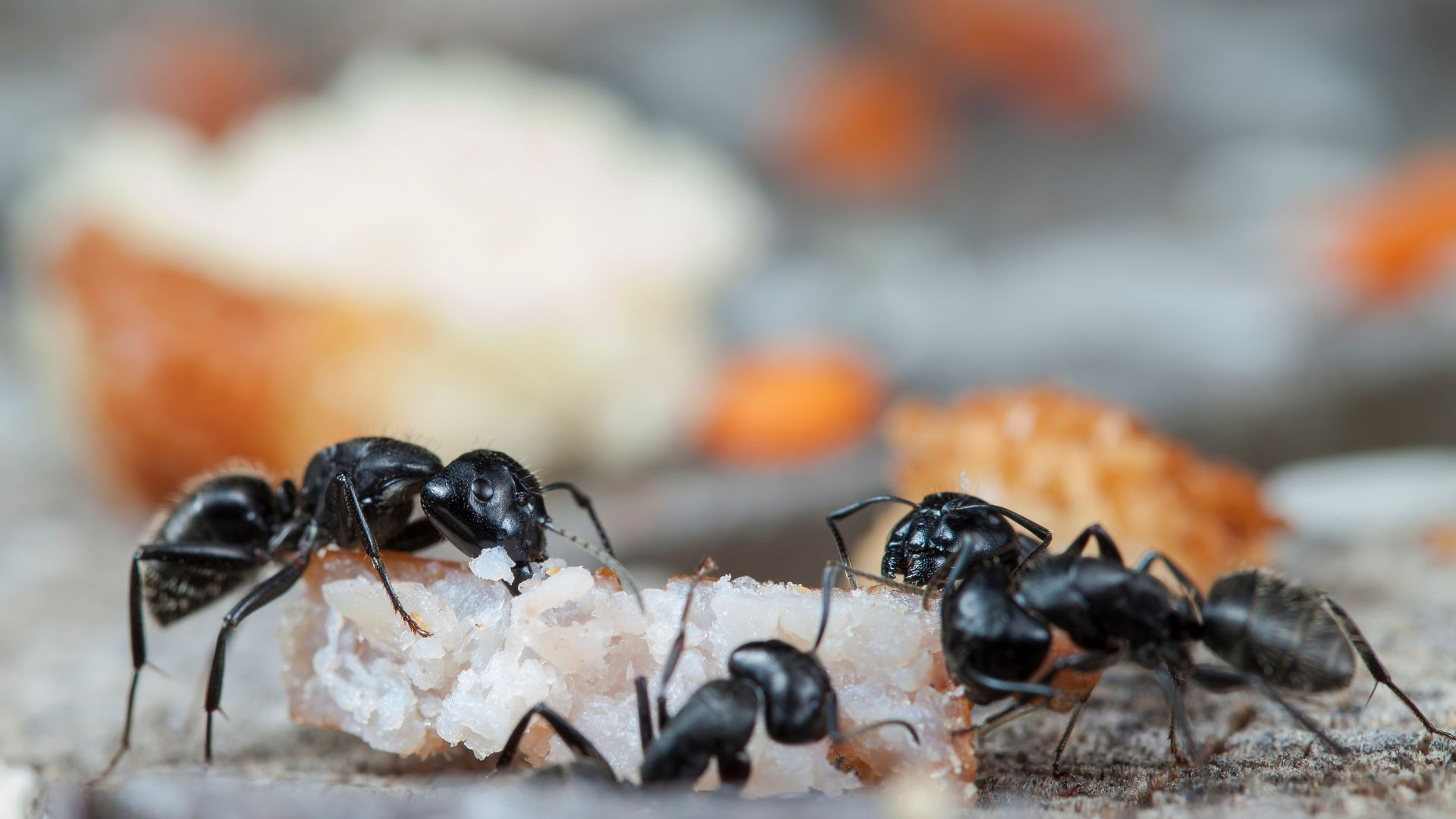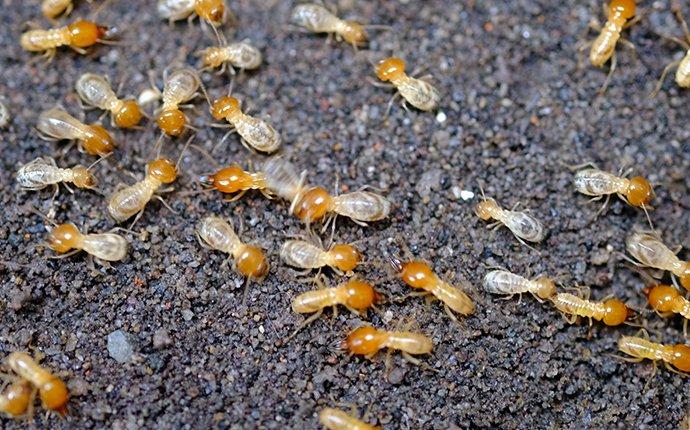Ecological Effect of Insect Control: Balancing Performance With Sustainability
The environmental effect of bug control is a crucial problem that needs a delicate balance between achieving performance in handling pests and making certain sustainability of our ecological communities. As we make every effort to protect our plants, homes, and wellness from the threats presented by pests, the methods we utilize can unintentionally hurt the setting. From the use of dangerous chemicals that seep into our dirt and water to the unplanned repercussions on non-target types, the repercussions of standard pest control methods are far-ranging. There are arising strategies that use hope for a more sustainable strategy to pest management. These remedies not only purpose to deal with the instant pest problems however likewise think about the long-term wellness of our planet.
Hazardous Chemicals in Bug Control
The usage of unsafe chemicals in parasite control poses considerable ecological and wellness risks that call for cautious consideration and mitigation strategies. Chemicals, herbicides, and insecticides are frequently used to eradicate parasites, yet their widespread application can lead to unintended consequences. These chemicals can infect soil, water sources, and the air, influencing not just the targeted bugs however likewise valuable insects, wildlife, and people.

To deal with these threats, integrated insect administration (IPM) strategies are being advertised as an extra lasting alternative. IPM involves a combination of approaches such as biological control, habitat adjustment, and the targeted use of pesticides as a last hotel (ant control cornelius nc). By taking on an all natural strategy to pest control, we can minimize the environmental and health and wellness effects related to hazardous chemicals while efficiently managing pest populations
Influence On Non-Target Types
Thinking about the unintended effects of insect control approaches, the effect on non-target species is an essential element that calls for detailed assessment. While parasite control procedures aim to target details bugs, other organisms in the ecological community might be accidentally affected. Non-target varieties, including useful pests, birds, creatures, and even plants, can experience straight or indirect harm from pesticide applications or organic control techniques.
Insecticides developed to combat a certain bug pest might hurt pollinators like or natural predators such as ladybugs. Organic control agents, if not species-specific, can pose threats to unintentional targets, interfering with the eco-friendly balance.
To reduce the influence on non-target types, integrated pest management (IPM) strategies that stress an all natural technique to pest control are suggested. These techniques prioritize making use of ecologically friendly practices, minimizing damage to advantageous organisms while effectively managing pest populaces. Carrying out complete danger assessments and keeping track of the results of insect control initiatives are crucial action in protecting non-target species and advertising total community health.
Dirt and Water Contamination
Unexpected environmental effects of bug control methods prolong beyond influencing non-target species, with substantial ramifications for dirt and water contamination. Chemicals, herbicides, and chemical fertilizers utilized in insect control can seep right into the soil and contaminate groundwater, posing a risk to both terrestrial and water communities. Soil contamination can disrupt the equilibrium of microorganisms vital for nutrition cycling and plant growth, resulting in lowered dirt fertility and performance. Moreover, these chemicals can continue the environment for extended periods, accumulating in the soil and potentially getting in the food web.
Water contamination is one more essential issue associated with insect control practices. Runoff from agricultural fields treated with pesticides can bring these chemicals into close-by water bodies, impacting water microorganisms and water top quality. Contaminants in water sources can have significant effects, impacting not only marine life but likewise human health and wellness with the usage of contaminated water or water organisms. To reduce soil and water contamination from bug control tasks, integrated bug administration strategies that prioritize sustainability and minimize chemical inputs are essential.
Air Pollution From Pesticide Usage
Exposure to airborne pesticides throughout farming applications poses a considerable problem for air pollution control actions. When chemicals are sprayed onto plants, they can volatilize right into the air and form unpredictable natural compounds (VOCs) and other airborne pollutants. These chemicals can contribute to the formation of ground-level ozone, a major element of smog that can have harmful impacts on human health and wellness, crop productivity, and total air top quality. In addition, pesticide drift, where chemicals are brought by the wind to unexpected areas, can result in the contamination of neighboring environments and water bodies.

Strategies for Lasting Insect Control
In the world of farming practices, applying lasting bug control strategies is vital for keeping ecological equilibrium and safeguarding crop returns. Sustainable pest control highlights using eco-friendly techniques to handle bug populaces successfully while lessening damage to non-target organisms and ecological communities. Integrated Pest Administration (IPM) is an extensively adopted strategy that integrates organic, social, physical, and chemical control techniques to accomplish long-lasting bug administration options.
Plant turning and diversity are additionally reliable strategies to interfere with pest life cycles and produce less favorable conditions for insects to prosper. Eventually, by integrating these lasting insect control techniques, farmers can attain an equilibrium in between pest management effectiveness and ecological stewardship.
Verdict
To conclude, the ecological impact of bug control approaches should be meticulously considered to balance efficiency with sustainability. Hazardous chemicals utilized in parasite control can lead to soil and water contamination, air contamination, and harm non-target species - termite control. It is crucial to carry out lasting pest control methods to decrease these negative impacts on the setting and advertise a much healthier community for future generations
By embracing an all natural approach to pest control, we can decrease the environmental and health and wellness effects linked with harmful chemicals while efficiently taking care of pest populaces.

To reduce the air contamination created by chemical use, it is vital to adopt incorporated insect management approaches that prioritize the usage of non-chemical insect control methods, such as crop turning, natural killers, and resistant plant ranges. Sustainable bug control stresses the use of ecologically pleasant methods to manage bug populaces efficiently while minimizing injury to non-target organisms and communities. Integrated Pest Administration (IPM) is a commonly taken on strategy that combines biological, cultural, physical, and chemical control methods to accomplish long-lasting bug monitoring remedies.